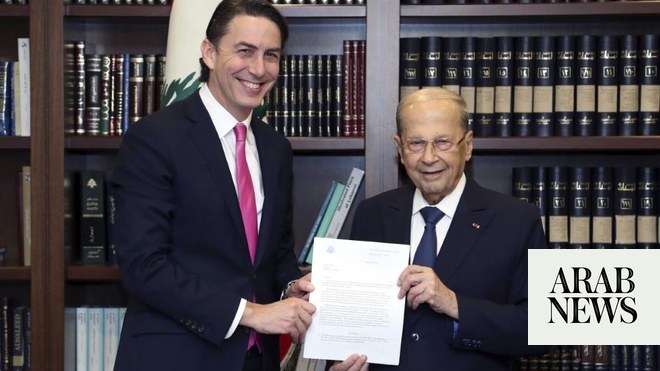
The negative economic repercussions of Lebanese Prime Minister Saad Hariri’s resignation have not yet appeared because he made his surprise move over the weekend and after the financial markets had closed.
Finance Minister Ali Hassan Khalil was quick to assure that there was “no danger” on the economy or the national currency.
Economy Minister Raed Khoury echoed this stance, saying that the financial, economic and security situations were stable given that the country has a strong president in Michel Aoun.
“Lebanon has passed through greater crises and managed to preserve its stability,” he remarked.
Head of the Democratic Gathering MP Walid Jumblat did not share these views, stating that “Lebanon is much too small and weak to bear the political and economic burdens” of Hariri’s resignation.
Minister of State for Planning Michel Pharaon agreed with the MP, saying that the resignation “eliminated all the positive conditions” in Lebanon and “attempts to place it on the investment map.”
“It is enough to point to the suffering the country endured after the coup against Hariri’s cabinet at the end of 2010 and the negative economic, financial and development situation that pervaded at the time,” he said.
That same scenario will be repeated today, he lamented.
Financial and economic expert Ghazi Wazneh said that Hariri’s resignation will create concern and turbulence in Lebanon, which will negatively effect the trade, tourism and real estate sectors, as well as consumer habits.
He predicted to Asharq Al-Awsat that as of Monday, the Lebanese pound will come under pressure, but that should not threaten monetary stability due to Lebanon’s large foreign currency reserves.
Lebanon’s trade and real estate sectors witnessed a noticeable revival a year ago with Hariri’s appointment as premier. It also enjoyed a good summer tourism season as over two million tourists visited the country.
Pharaon said: “The Lebanese economy is now in a difficult position and we should not link development with consumers because revival can only be achieved through the flow of Arab and foreign investments.”
“We will miss this in the days and months to come,” he warned.
Wazneh stated that the resignation will “inevitably” eliminate all the reform measures that the government was taking in the energy, telecommunications, infrastructure and waste files.
Moreover, it will eliminate the 2018 state budget that Lebanon was counting on to revive the economy, he noted.
He explained: “The name Saad Hariri, his personality and regional and international ties were confidence boosters for the economy.”
Any other figure that will replace Hariri will not be able to fill the void that he left behind, Wazneh continued.
Joseph Torbey, head of the Association of Banks in Lebanon, meanwhile told Reuters that there was no risk to monetary stability because the central bank had large reserves and there was confidence in Lebanese banks.











